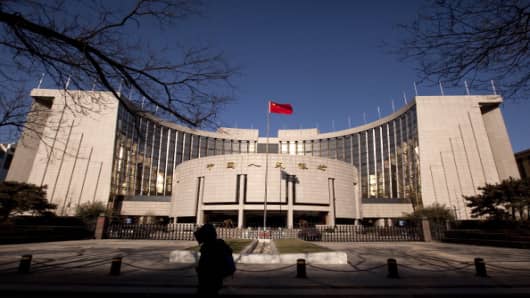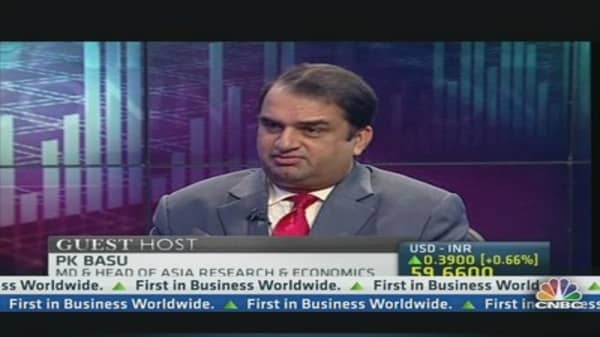The Chinese central bank's hands-off approach to the credit crunch facing lenders, which pushed short-term interest rates to record highs last week, could pose a serious threat to the financial system in the world's second largest economy.
"A risk is that the PBOC's [People's Bank of China] actions will make banks more nervous about each other's creditworthiness," wrote Bin Hu, senior analyst at Moody's Investor Service in a report on Monday, which could constrain lending further.
While the 7-day repo rate - which is a gauge of the availability of funds in the interbank market - has eased from above 10 percent last week to 8 percent currently – it remains far above the one-year average of 3 percent.
Worries over the credit crunch and a downgrade for China stocks from Goldman Sachs prompted a sell-off in the Shanghai Composite, which fell 5.3 percent on Monday to its lowest level since early December 2012.
(Read More: What's Really Behind China's Cash Crunch)
The PBOC, which has been tightening cash in the money markets to rein in excessive credit growth, said Monday that overall liquidity was at a "reasonable" level and asked commercial banks to improve the ways they manage their liquidity and control lending.
"While the trigger for the liquidity crunch appears to have been PBOC policy rather than banks' loss of confidence in the credit standing of other banks, rumors did circulate last week about some banks being late making payments," he said, referring to media reports earlier this month that China Everbright Bank defaulted on an interbank loan.
Persistent money market volatility similar to that of last week could result in "lasting damage to confidence" in the interbank market, Hu added.
(Read More: Time for China's Central Bank to Change Tack?)
According to Moody's, the nation's small to medium sized lenders that are dependent on the interbank market are especially vulnerable under the current tight liquidity environment.





